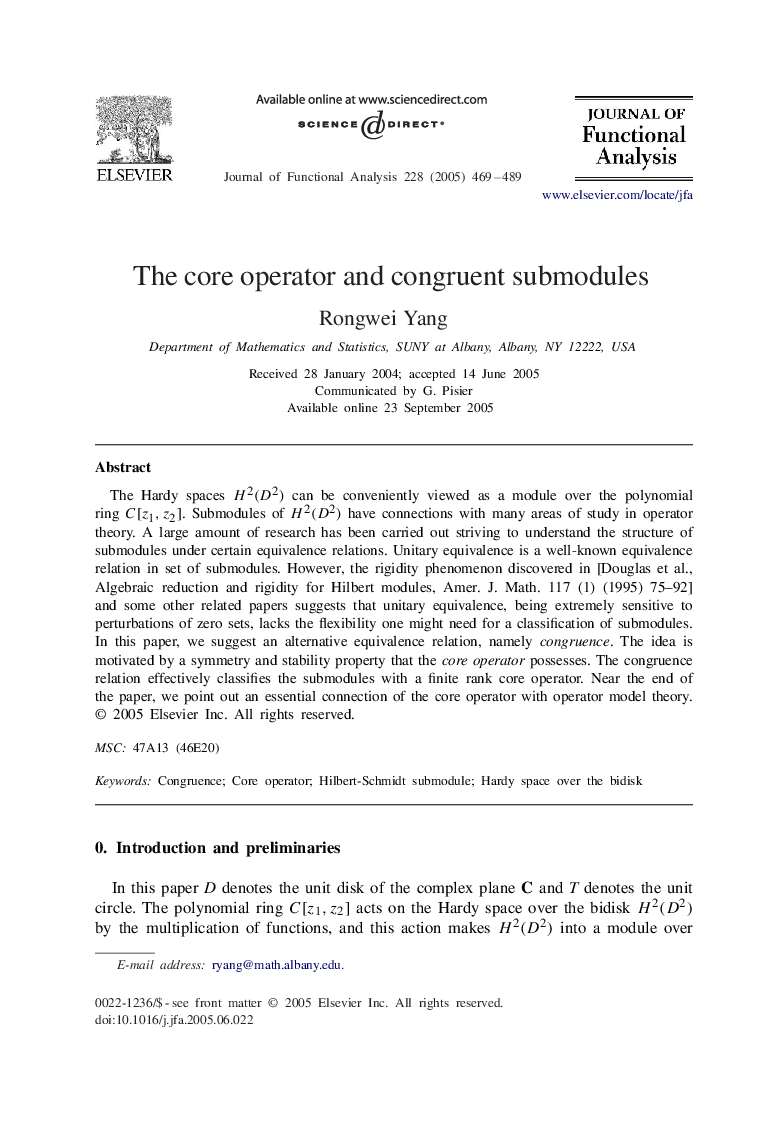| Article ID | Journal | Published Year | Pages | File Type |
|---|---|---|---|---|
| 9495782 | Journal of Functional Analysis | 2005 | 21 Pages |
Abstract
The Hardy spaces H2(D2) can be conveniently viewed as a module over the polynomial ring C[z1,z2]. Submodules of H2(D2) have connections with many areas of study in operator theory. A large amount of research has been carried out striving to understand the structure of submodules under certain equivalence relations. Unitary equivalence is a well-known equivalence relation in set of submodules. However, the rigidity phenomenon discovered in [Douglas et al., Algebraic reduction and rigidity for Hilbert modules, Amer. J. Math. 117 (1) (1995) 75-92] and some other related papers suggests that unitary equivalence, being extremely sensitive to perturbations of zero sets, lacks the flexibility one might need for a classification of submodules. In this paper, we suggest an alternative equivalence relation, namely congruence. The idea is motivated by a symmetry and stability property that the core operator possesses. The congruence relation effectively classifies the submodules with a finite rank core operator. Near the end of the paper, we point out an essential connection of the core operator with operator model theory.
Keywords
Related Topics
Physical Sciences and Engineering
Mathematics
Algebra and Number Theory
Authors
Rongwei Yang,
